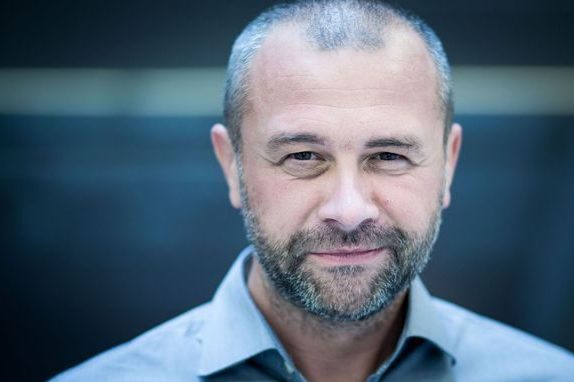
Your Voice: Taking on the mantle of strengthening civil society leadership
May 15, 2019
Your voice: We must do more to support fundraisers’ professional development
July 10, 2019As climate change campaigns Extinction Rebellion and Fridays for Future sweep across the globe, Fundraising Europe looks at what these mass people movements and ‘new power’ could mean for charity fundraising.
The current rules of power are fast changing. Grassroots campaigns are taking hold while traditional powerhouses; corporate giants and leaders, are in danger of losing their foothold.
In today’s world, individuals and groups have the ability to quickly and easily come together, to connect and self-organise. And as the success of mass decentralised and people-driven campaigns becomes more visible, there is greater recognition that the paradigms of power are indeed changing, further inspiring the public to rise up and bring about change.
From the #MeToo movement, which toppled some of the most powerful men in Hollywood and beyond to the recent uprising of people calling for urgent action on climate change, it’s increasingly evident that the public – if the cause is sufficiently compelling – are willing to take action. After all, in years gone by, who would have thought that Government policies in multiple nations could ever be swayed by the actions of one 15-year-old student – Swedish climate change activist and initiator of the #FridaysforFuture campaign, Greta Thunberg?
Shifting dynamics of power
The transition of old to new power has never been more evident. While old power refers to strict leader-driven and hierarchical structures, new power is collaborative, inclusive and agile (see New Power by Jeremy Heimans and Henry Timms). It embraces decentralisation, using methods like crowdsourcing, online toolkits and social media campaigns to engage the masses and inspire a response, equipping them to take part in their own way. Old power requires a leader, but new power is fed by the crowd, moving with the tide of public sentiment. It is relevant, timely and fluid.
Eduard Marček, chair of the Slovak Fundraising Centre, says:
“The public is increasingly frustrated by the inaction of politicians or even destructive counter-action and they are more than willing to take action into their own hands. We can see these signs of civic disruption across Europe, from the Yellow Vests in France through climate protests all around to protests against the government here in Slovakia.
“Driven both by technology and civic empowerment, the traditional structures are shifting towards the power of an individual – with the capacity to speak with a strong voice, to mobilise communities and to bring about change.”
Community action has long been at the heart of what charities do, but what can the sector learn from the success of these mass movements?
The movements uniting public spirit
Over the past six months alone, Extinction Rebellion (XR) has swept across the globe initiating a ‘non-violent rebellion’ against the world’s governments for criminal inaction on the ecological crisis. Launched in the UK, the campaign has now amassed more than 650 operational groups in 45 countries, including Germany, Belgium, Switzerland, France, Italy, Norway, Spain and Denmark.
Paul de Gregorio, digital engagement and mobilisation strategist, and founder of Rally says: “Extinction Rebellion may lack formal structure, but it is extremely well organised at the centre. It is open source, free and accessible, with a compelling call to action for to join up, to be a rebel for the cause. It makes it easy for people to that, giving them tools to take action.
“Rather than traditional models of activating support, people are encouraged and equipped to self-organise and promote the mission in their own way.”
The only real proviso is that people who operate under Extinction Rebellion’s brand, must adhere to the core principles and values. This is a common theme for the most successful mass movements; they are all values-driven, with a clear vision and simple messages about what needs to be done, uniting people around a common cause.
de Gregorio also highlights examples from the US political scene.
“Look at the Bernie Sanders’ 2016 campaign for the Democratic Party’s presidential nomination. He achieved a massive impact through a distributed digital organising model, attracting the public who shared his values and then giving them a series of valuable and useful things to do to power his campaign.”
In a similar vein, Knock Down The House, the story of four women and their journey to challenge some of the most powerful people in US Congress, demonstrates not only the appetite for public uprising and shift in power, but new ways of achieving this. The producers of the film launched a screening toolkit, encouraging community groups to make use of Netflix’s free educational screening facility to share the documentary and build support.
He adds: “Bringing supporters together at events like this has huge potential for charities and voluntary groups. They can be a great way to enable supporters to share your story and inspire others.”
Implications for charities and fundraising
Charities have the ability to achieve change on a mass scale
Technological innovation and the strength of social and online communities mean that there is an abundance of tools for charities to arm supporters to engage even more actively with the cause. Not only to become donors, but ambassadors; an important transition when it comes to engaging with millennial donors who are often looking for greater engagement and want to clearly see their impact.
de Gregorio says: “The challenge is that the sector isn’t always as tech savvy as it needs to be. We’ve got the tools, but fundraisers need to know how best to use them and keep up with changes in the marketplace.
“The charities that keep up with human behaviour, successfully innovate their methods of engaging the public at scale by putting their values front and centre, as well as offering the very best experience, will be the ones that succeed over the next 15 years.”
The public really does care, but giving money isn’t always their answer
As Daniel Fluskey, head of policy and external affairs, at the Institute of Fundraising recently underlined in a blog for Civil Society, passion is very much alive: “Look at Extinction Rebellion, environmental causes, protests about human rights, rise in donations to media and journalism, calling out sexual harassment, promoting equality, or even responses to Notre-Dame… People care, but how they express their feelings (and what action they take), may well be changing.”
Indeed, several European nations (including France and the UK) have reported recently that the number of people donating to charity is declining. There are many options to engage with a cause and people often want to find their own ways to tackle problems. Giving to charity isn’t always the default route to market, and the sector should not be afraid of giving them other options to step up and take action.
Marçek adds: “If charities want to remain relevant and succeed in fundraising in this changing environment, they need to offer something individuals cannot find or achieve by themselves. That might be a unifying brand, shared values, unique expertise, networks or something else.”
“Ultimately, charities need to redefine their position, what they offer to these individuals and how they connect with them. This means re-defining their approach to fundraising and adapting it to this disruption.”
Values should be the focal point
“We need to focus on values, not fundraising products,” says de Gregorio. “And those values should be central to our attraction strategies. This is what will help to build an engaged, committed crowd of like-minded individuals at scale.”
Giving the public greater control enables them to feel empowered and more closely connected to the cause. This can be said of peer-to-peer and crowdfunding initiatives, sponsorship or challenge events and – at a broad sector level – GivingTuesday.
“All this means recognising that we are not at the centre of the movement, but that we need to find the people who are already in it or share our vision and values. And we need to inspire them to give us some of their time, money or voice.”
Fluskey agrees: “It’s our challenge to meet people’s values and expectations, not theirs to find us.”




